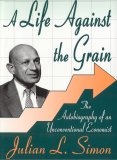
Note well that certification applies only to those companies foolhardy enough to sell shares in their future profits to the public. It would not apply to Arthur Anderson, for example. In the future, we can expect more of the promising new companies to stay private and more public firms to be taken private. Staying private is a simple way to avoid regulatory harassment and the associated expenses of battling frivolous lawsuits. As a result, stockholders may miss out on some of the best opportunities.But at least the new law made politicians feel better about themselves. Doesn't that count for something?
The high pay of America's C.E.O.'s reflects intense competition among companies for the best managerial talent. Stock options and other typical forms of executive compensation are designed to provide incentives for performance. These incentives align the personal interests of managers with those of shareholders.The paper in question, "Executive compensation in America: Optimal contracting or extraction of rents?" by Lucian Bebchuk, Jesse Fried and David Walker (of Harvard, Berkeley and Boston University respectively), was released last December. Fortunately, the whole thing is online in PDF format.
Nothing in the preceding paragraph is true. That's the message of an extraordinary research paper circulated by the National Bureau of Economic Research, an economics think tank. The paper is must reading for anyone trying to understand what's really going on in our economy.
In a system of emission rights governments create an artificial shortage of energy and subsequently allocate rights to use this energy to individual companies. These companies then have a sort of monopoly. As a result, they have an interest in preventing any reversal of the artificial shortage, for instance as a result of technological breakthroughs or new climatological insights which show that man-made emissions of greenhouse gases have hardly any influence on the climate. After all, in that case, their emission rights, which they may have bought for a great deal of money, would have no value.
In her article opposing Hollywood hacking, [she] suggests that Hollywood need not fight peer-to-peer thievery because, as she correctly notes, "consumers will always be willing to pay market prices to be entertained." A market price is not the fair or reasonable price; rather it's the amount of money consumers must pay to acquire goods. But in a world of easy peer-to-peer piracy, the market price of movies, books and music is zero.Miller also makes a facetious comparison between illegally downloaded music and the permission to speak English:
What price would I have to set to sell you my permission to speak English? I imagine readers of this article derive massive value from conversing in English. So, if you give me a mere $10, I will give you my permission to speak English. Obviously, you have the capacity to speak English independent of my permission, so only a fool would pay me my requested $10. What if I lower my price to $1, will you now purchase my permission? Again, since you can speak English for free, why would you ever pay for my consent regardless of how low a price I set? Similarly, if consumers can costlessly download copyrighted material, they should rationally never pay for legal copies. If you can costlessly obtain an illegal copy of a song, all the copyright holder really has to sell is his permission for you to listen. But, since it's permission you don't need, it's permission you shouldn't pay for.
All this because we’ve decided that a tin-pot totalitarian who’s shown himself to be eminently deterrable in the past, is no longer susceptible to the logic of deterrence. Hussein is a hideous tyrant who no doubt has a special skewer reserved for him in Hell, but he’s far less crazy and dangerous than nuclear-armed Mao and Stalin (Gold and Silver medallists in the 20th century’s genocidal Olympics), both of whom were deterred quite effectively.Bottom line: deterrence works for the simple reason that people respond to incentives and usually try to rationally pursue their goals, even if their goals are evil. It's simple economics.
One of the objections by the educational establishment to state-mandated tests for students is that this forces the teachers to teach directly the material that is going to be tested, instead of letting the students "discover" what they need to know through their own trial and error, under the guidance of teachers acting as "facilitators" from the sidelines.Of course, the bottom line is not plausibility, but what works:
In other words, the students should not simply be taught the ready-made rules of mathematics or science but discover them for themselves. The fact that this approach has failed, time and again, to produce students who can hold their own in international tests with students from other countries only turns the American education establishment against tests.
Discovery learning is just one of the many fads in education circles today. Only someone with no real knowledge or understanding of the history of ideas could take such a fad seriously.
It took more than a century of dedicated work by economists of genius to arrive at the analysis of supply and demand that is routinely taught in the first week of Economics 1. How long are novices in economics supposed to flounder around trying to "discover" these same principles?
But judging one method of teaching against another by the end results that each produces is the last thing that our fad-ridden educators want. That is at the heart of their objections to having to "teach to the test" instead of engaging in "creative" teaching and "discovery learning" by students -- as they arbitrarily define these terms, and simply assume that these methods work.This is a recurring theme in Sowell's critiques of education, actually measuring performance as opposed to relying on untested fads. See, for example, Education: Assumptions Versus History, a collection that reprints a bunch of education-themed articles by Sowell from various publications.